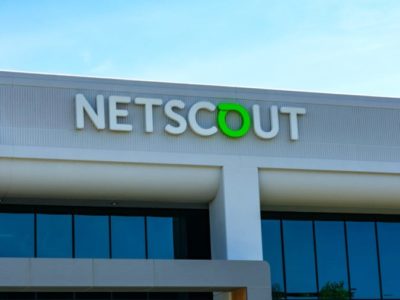By Sonny Aragba-Akpore
On Saturday April 5, United States President Donald Trump announced an extension of 75 days for Tik Tok on his Truth Social platform, saying the TikTok deal “requires more work to ensure all necessary approvals are signed.”
RELATED: US Supreme Court upholds TikTok ban: App faces uncertain future amid looming deadline
He said he is signing an executive order “to keep TikTok up and running for an additional 75 days.” With this development, the 170 million subscribers connected to Tik Tok in the United States of America (USA) have another 75 days to meander on the App unhindered.
This new deadline which an Executive Order covers follows the expiration of the first 75 days Order on April 5. Tik Tok owners, ByteDance of China, have these 75 days to divest completely from the American operations or risk being sent to the dark or being banned.
China faces a 54% aggregate tariff on goods imported into the US, and has retaliated with 34% in counter tariffs.
Buying TikTok
Reports suggest several potential buyers for TikTok have cropped up in recent days. Amazon has put in a last-minute offer to the White House to acquire the platform, according to Agency reports though the firm has declined comment.
Several other potential buyers include billionaire Frank McCourt, together with Canadian businessman Kevin O’Leary. Alexis Ohanian, who co-founded Reddit, has said he has joined Mr McCourt’s bid.
Computing giant Microsoft, private equity giant Blackstone, venture capital firm Andreessen Horowitz and search engine Perplexity AI are also reportedly in the running for a stake.
Trump has said his administration was in touch with four separate groups interested in a potential TikTok deal, though he has not named them. Vice-President JD Vance is spearheading the administration’s effort to find a buyer.
The president has also suggested the US could offer a deal where China agrees to approve a TikTok sale in exchange for relief from US tariffs on Chinese imports.
“We hope to continue working in Good Faith with China, who I understand are not very happy about our Reciprocal Tariffs,” Trump wrote on Truth Social.
He added that the trade levies are “the most powerful economic tool, and very important to our national security”.
Another 75-day respite
Trump granted TikTok a second 75-day extension to comply with a law that requires the hugely popular video app to either sell its US operation or face a ban in the country.
“We do not want TikTok to ‘go dark’,” Trump wrote on Truth Social.
“We look forward to working with TikTok and China to close the Deal.” The platform is currently owned by Chinese company ByteDance.
Trump’s first extension was granted after he took office in January and this expired-on Saturday, April 5,2025.
In a statement on Friday, April 4, ByteDance said it had been in discussion with the Trump administration, but “an agreement has not been executed”. “There are key matters to be resolved. Any agreement will be subject to approval under Chinese law,” a spokesperson said.
Former US President Joe Biden’s administration had argued that TikTok could be used by China as a tool for spying and political manipulation.
Congress passed a bipartisan law last year that gave ByteDance six months to sell its controlling stake in TikTok or see the app blocked in the US.
Opponents of a ban have cited freedom of speech as a reason for keeping the platform open. But the new extension comes as the Trump administration tries to broker a deal to bring the social media platform under American ownership, and keep the popular app running in the US.
Selling TikTok requires more work
“The Deal requires more work to ensure all necessary approvals are signed,” Trump wrote on his Truth Social platform on Friday.
The social media platform, which says it has more than 170 million users in the US, must close in the US under a law passed by Congress – unless a buyer is found.
Agency reports that a TikTok deal was nearly finalised on Wednesday last week but fell apart after Trump on the same day announced sweeping global tariffs, including on China.
Agency reports further explained that ByteDance representatives contacted the White House to inform them China would no longer approve the deal unless negotiations on the tariffs could take place.
Unnamed sources said the plan had been for Trump to sign an order initiating a 120-day period for closing the deal, allowing time to finish paperwork and secure financing.
The agreement had won approval from existing investors, new investors, ByteDance, and the US government, but China backed out once Trump imposed the global import taxes.
The Chinese embassy in Washington DC said in a statement that it “opposed practices that violate the basic principles of the market economy”.
The US TikTok ban
A federal law signed by former President Joe Biden in 2024 effectively banned TikTok if it remained under Chinese ownership. The initial law called for the app to permanently go offline on Jan. 20, but Trump signed an executive order extending the deadline by 75 days.
The US TikTok ban, which received overwhelming bipartisan support, required TikTok’s parent, ByteDance, to divest the short-form video app over US concerns that it posed a national security threat.
US officials have long argued that the Chinese government, which is designated as a US adversary, could gain access to Americans’ TikTok user data for nefarious purposes or use the platform to spread propaganda.
The US law banning TikTok forces web service providers to stop hosting the app and requires Apple and Google to pull it from their app stores.
TikTok took a challenge to the law all the way to the US Supreme Court, arguing that it infringed on the company’s First Amendment and other constitutional rights. A group of TikTok users made similar claims in a companion case, claiming they, too, had been deprived of constitutional protections.
But the high court ruled in favour of the government, reasoning that TikTok, as a foreign entity, wasn’t entitled to constitutional protections and that national security concerns outweighed the government’s restriction on TikTok use. The court also said the law was limited in its infringement on free speech because social media users could access and post on other social media platforms.
The Act to ban Tik Tok if it did not divest its operations in the USA was signed with broad support from Republicans and Democrats.
From TikTok to RedNote
Although some lawmakers had urged President Joe Biden to grant a reprieve to prevent TikTok from going dark in the U.S. as soon as Jan. 19,2025, the TikTok ban had already resulted in a number of “TikTok refugees” who moved to another Chinese app, RedNote, short for “Little Red Book.” RedNote became the most downloaded app in Apple’s app store in the U.S. the week leading up to the Supreme Court’s decision.
If this trend continues, this “migration” to a similarly situated app might defeat the purpose of the Act. The TikTok ban illustrates how U.S. regulatory actions are designed to mitigate potential threats posed by foreign adversaries, significantly increasing compliance requirements for cross-border investments and technology operations. Particularly, the Supreme Court’s decision upholding the TikTok ban underlines the trend of intensifying scrutiny of foreign-controlled entities that collect or handle sensitive data in the U.S.
Although it’s not clear whether there will be a reprieve for Tik Tok,there are strong indications that the Trump administration needs more time to understand the situation and perhaps to be the one to implement the ban.
The TikTok global sphere
TikTok has 1,925 billion users globally, with 170 million monthly active users in the United States. The average daily time spent on TikTok has more than doubled from 27 minutes in 2019 to 58 minutes in 2024.
The most popular categories on TikTok are Entertainment, Dance, and Pranks, with billions of views each. Top influencers on TikTok include Charli D’Amelio, Khabane Lame, and Addison Rae, each with tens of millions of followers.
TikTok’s user base has grown exponentially from 133 million in 2018 to over 1,925 billion in 2024. Daily active users on TikTok have skyrocketed into the millions, reflecting the platform’s ability to engage users on a daily basis.
In the year 2020, Trump issued an executive order citing TikTok’s ability to capture vast amounts of user data as a significant national security threat. The order sought to prohibit certain transactions involving ByteDance but was blocked by federal courts.
Subsequently, the Trump Administration directed ByteDance to divest its U.S. TikTok operations and user data, but these efforts were stalled as negotiations with the president Joe Biden Administration aimed at a nondivestiture agreement failed to resolve the government’s concerns.
ByteDance’s proposed national security agreement was ultimately deemed insufficient to mitigate risks posed by Chinese control. Against this backdrop, Congress enacted the sale-or-ban law, further targeting TikTok and similar applications.
TikTok is subject to Chinese laws requiring it assist Chinese government’s intelligence work
According to the Supreme Court’s finding, TikTok’s ultimate parent company, ByteDance, is a privately held company that has operations in China. ByteDance owns TikTok’s proprietary algorithm, which is developed and maintained in China. The company is subject to Chinese laws that require it to assist or cooperate with the Chinese government’s intelligence work and to ensure that the Chinese government has the power to access and control private data that the company holds.
Underscored in the decision, TikTok’s extensive data collection from more than 170 million U.S. users could be exploited for surveillance, public influence campaigns or other harmful purposes that threaten national security. The Act and the holding reflect Congress’ and the Supreme Court’s efforts to address growing concerns over foreign adversary-controlled applications through the access to sensitive data of U.S. nationals and the resulting potential risks to U.S. national security.

































